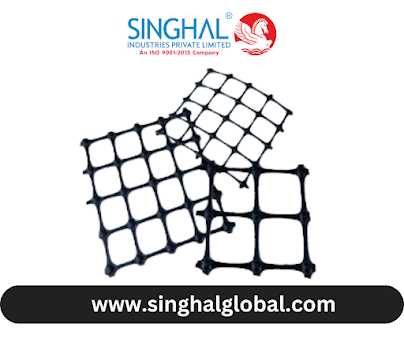PP Woven Fabric: Versatile, Durable Material for Packaging and Beyond
In the realm of modern packaging and industrial applications, PP woven fabric stands as a stalwart material known for its versatility and durability. PP, or polypropylene, woven fabric has revolutionized various sectors due to its robustness, cost-effectiveness, and eco-friendly nature. This article delves into the characteristics, applications, manufacturing landscape, and the prominent role of PP woven fabric, focusing particularly on Singhal Industries and the market in India.
Understanding PP Woven Fabric
Polypropylene (PP), a thermoplastic polymer, serves as the fundamental building block for woven fabric manufacturing. PP's inherent properties—such as high strength-to-weight ratio, resistance to tearing and puncture, and moisture resistance—make it ideal for diverse applications. Woven PP fabric typically consists of interwoven polypropylene tapes or fibers, which contribute to its strength and durability.
Applications Across Industries
The versatility of PP woven fabric transcends various industries, prominently in packaging, agriculture, construction, and geotextiles:
1. Packaging: PP woven fabric is widely used in the packaging industry for making sacks, bags, and FIBCs (Flexible Intermediate Bulk Containers). These containers are favored for their ability to withstand heavy loads, provide UV protection, and resist moisture, making them suitable for storing and transporting agricultural produce, chemicals, minerals, and more.
2. Agriculture: In agriculture, PP woven fabric finds application in ground covers, shade nets, and packaging for seeds and fertilizers. Its UV resistance and strength ensure longevity and protection against environmental factors, enhancing crop yield and quality.
3. Construction: PP woven fabric plays a crucial role in construction as scaffolding nets, tarpaulins, and debris nets. Its durability and weather-resistant properties make it indispensable for outdoor applications, offering protection and safety on construction sites.
4. Geotextiles: Used extensively in civil engineering, PP woven geotextiles provide reinforcement, filtration, and erosion control in road construction, embankments, and slope stabilization projects. Their permeability and strength contribute to sustainable infrastructure development.
Manufacturing of PP Woven Fabric
PP woven fabric manufacturers, including Singhal Industries, employ advanced technology and stringent quality control measures to produce high-performance materials. The manufacturing process involves extruding polypropylene granules into flat tapes, which are then woven together to form a strong fabric. Various customization options, such as different fabric weights, colors, and coating treatments (like laminations), cater to specific end-user requirements across industries.
PP Woven Fabric Manufacturers in India
India has emerged as a significant hub for PP woven fabric manufacturing, leveraging its skilled workforce, technological advancements, and competitive pricing. PP Woven Fabric Manufacturers in India, including industry leaders like Singhal Industries, contribute significantly to the domestic and global markets. Their products adhere to international standards, ensuring reliability and performance in diverse applications.
Singhal Industries, a prominent name in the Indian market, exemplifies excellence in PP woven fabric production. With state-of-the-art facilities and a commitment to innovation, Singhal Industries caters to a wide array of industries with tailored solutions. Their expertise in manufacturing PP Woven Fabric Rolls ensures consistent quality and durability, meeting stringent customer demands and regulatory requirements.
Sustainable and Eco-Friendly Choice
Beyond its functional benefits, PP woven fabric aligns with sustainable practices in modern industries. Polypropylene, as a recyclable material, supports circular economy initiatives by promoting reuse and reducing environmental impact. PP woven fabric's durability extends product lifespan, minimizing waste generation and carbon footprint throughout its lifecycle.
Future Trends and Innovations
Looking ahead, the PP woven fabric market anticipates continuous growth driven by technological advancements and evolving consumer preferences. Innovations in materials engineering, such as incorporating biodegradable additives or enhancing barrier properties, aim to expand application possibilities and sustainability credentials. Additionally, digitalization in manufacturing processes enhances efficiency and product traceability, further optimizing supply chain operations.
Conclusion
In conclusion, PP woven fabric stands as a cornerstone material in modern packaging and industrial applications due to its versatility, durability, and eco-friendly characteristics. The contributions of PP Woven Fabric Manufacturers, especially in India exemplified by companies like Singhal Industries, underscore its pivotal role in diverse sectors worldwide. As industries evolve and demand for sustainable solutions rises, PP woven fabric remains poised to meet the challenges of tomorrow while continuing to innovate and advance its applications across global markets.
FAQs
1. What are the main advantages of using PP woven fabric in packaging?
PP woven fabric is prized for its strength, durability, and customizable nature, making it ideal for various packaging needs.
2. How environmentally friendly is PP woven fabric?
PP woven fabric is highly recyclable and reusable, contributing to reduced environmental impact compared to other materials.
3. Who are some notable PP woven fabric manufacturers in India?
Some prominent manufacturers include Singhal Industries, known for their high-quality PP woven fabric products.
4. What innovations are expected in the future of PP woven fabric?
Future advancements may focus on enhancing the sustainability and versatility of PP woven fabric, potentially expanding its applications beyond traditional uses.
5. How can I find a reliable supplier of PP woven fabric?
When choosing a supplier, consider factors such as product quality, pricing, and their commitment to sustainability practices.
%20(1).jpg)

.png)
Comments
Post a Comment